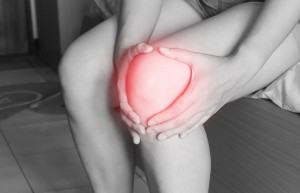‘Wear and tear’ is a term often used to excuse the source of various joint aches and pains that we all suffer with from time to time. This description is often used instead of the more precise explanation of osteoarthritis. People don’t tend to like the word arthritis, as it conjures up images of crumbling bones, worn cartilage and permanent or worsening debility.
Osteoarthritis is the most common form of arthritis, tending to affect the larger, weightbearing joints of the body, such as knees, hips or spinal joints, which, dare I say it again, become a bit ‘worn’ with repetitive use of standing on two legs and our various daily activities. It can cause stiffness, creaking and crunching and pain in our joints that can lead to a reluctance/ inability to perform our normal daily tasks.
 The truth is, osteoarthritis is a normal part of the aging process; as adults we are all going to have a degree of arthritic change in our bones and joints. What machine runs for 80 years without being serviced, or having parts replaced? That’s not to say that we’re all going to end up with unbearable pain, in need of knee or hip replacements (or both)! Or that when we start suffering with osteoarthritic pain that we must just put up with it for the rest of our lives. And at the same time, those pains associated with Osteoarthritis should not be dismissed and just accepted as a sign of ‘getting older’.
The truth is, osteoarthritis is a normal part of the aging process; as adults we are all going to have a degree of arthritic change in our bones and joints. What machine runs for 80 years without being serviced, or having parts replaced? That’s not to say that we’re all going to end up with unbearable pain, in need of knee or hip replacements (or both)! Or that when we start suffering with osteoarthritic pain that we must just put up with it for the rest of our lives. And at the same time, those pains associated with Osteoarthritis should not be dismissed and just accepted as a sign of ‘getting older’.
A degree of ‘wear and tear’ is normal and comes hand in hand with getting older. The simple fact that we all show some degree of osteoarthritic change serves to demonstrate that osteoarthritis doesn’t mean the same thing as pain. Two people of the same age may feel different pain levels and a person’s symptoms can be very different to the amount of arthritic changes seen on an x-ray.
Most of the time our bodies can adapt to function around the normal joint changes. It’s only when these compensatory patterns are pushed beyond their normal limits that they start to break down and result in pain and dysfunction.
Although as an osteopath, physiotherapist or massage therapist, we are not going be able to reverse the arthritic changes, we may be able to improve the pain and increase the reduced mobility and function that results from it. The pain will lead to you using the affected limb differently, for instance bearing your weight on the other side, and it will lead to certain muscles being overused, and other muscles being underused and getting weaker as a result. Those tight muscles may pull the joint into an uncomfortable position and the weaker muscles not support it. These are all things that we can tangibly help with in order to return the muscular control around the joint to as normal as possible, which may well decrease the levels of pain you experience.

